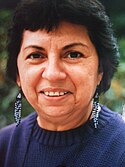Gloria E. Anzaldúa Quote
The process of falling apart (the Coyolxauhqui process), of being wounded, is a sort of shamanic initiatory dismemberment that gives suffering a spiritual and soulful value. The shaman’s initiatory ordeal includes some type of death or dismemberment during the ecstatic trance journey. Torn apart into basic elements and then reconstructed, the shaman acquires the power of healing and returns to help the community. To be healed we must be dismembered, pulled apart. The healing occurs in disintegration, in the demotion of the ego as the self’s only authority.20 By connecting with our wounding, the imaginal journey makes it worthwhile. Healing images bring back the pieces, heal las rajaduras. As Hillman notes, healing is a deep change of attitude that involves an adjustment and abandonment of ego-heroics. It requires that we shift our perspective. La
The process of falling apart (the Coyolxauhqui process), of being wounded, is a sort of shamanic initiatory dismemberment that gives suffering a spiritual and soulful value. The shaman’s initiatory ordeal includes some type of death or dismemberment during the ecstatic trance journey. Torn apart into basic elements and then reconstructed, the shaman acquires the power of healing and returns to help the community. To be healed we must be dismembered, pulled apart. The healing occurs in disintegration, in the demotion of the ego as the self’s only authority.20 By connecting with our wounding, the imaginal journey makes it worthwhile. Healing images bring back the pieces, heal las rajaduras. As Hillman notes, healing is a deep change of attitude that involves an adjustment and abandonment of ego-heroics. It requires that we shift our perspective. La
Related Quotes
About Gloria E. Anzaldúa
